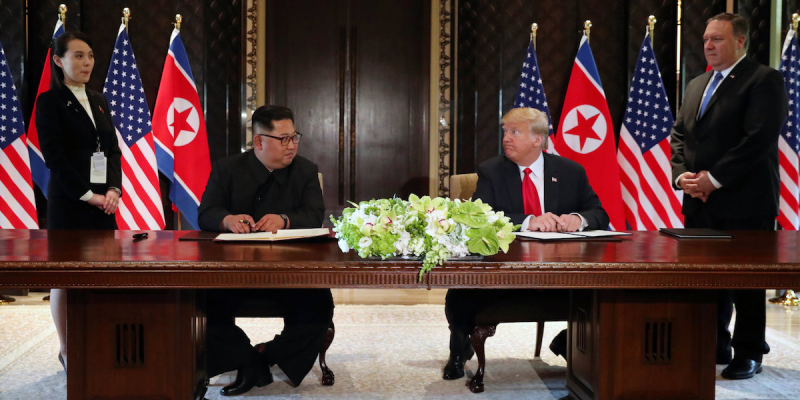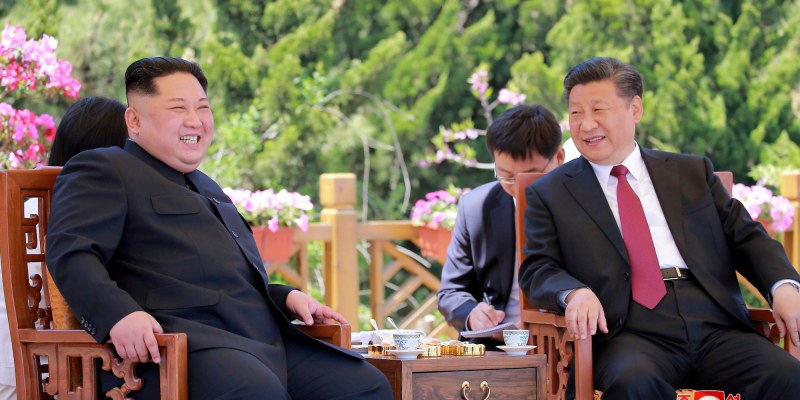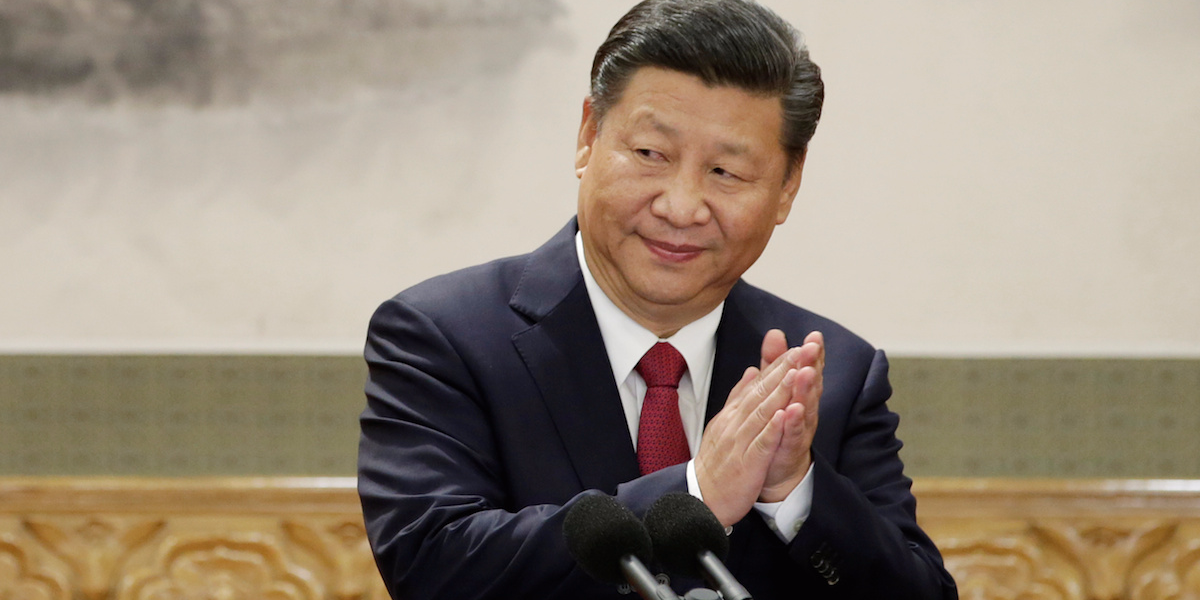- China has repeatedly proposed a “dual suspension” initiative for North Korea, in which Pyongyang suspends its nuclear program in exchange for the US and South Korea to suspend joint military exercises.
- The US has continually rejected the Chinese proposal.
- Trump’s suggestion in Singapore that the US and South Korea halt “war games” suggests that he has come around to China’s worldview.
Donald Trump and Kim Jong Un were the stars of the historic Singapore summit on Tuesday, but it was China’s worldview that dominated.
Trump on Tuesday pledged to suspend the US and South Korea’s “war games,” or military drills. It can be seen as a concession in exchange for Kim halting nuclear and missile tests during 2018 – and an acknowledgement of China’s “suspension-for-suspension” proposal.
Geng Shuang, the Chinese Foreign Ministry’s spokesman, told reporters on Wednesday: “North Korea has stopped its nuclear tests, and the US and South Korea are practising self-constraint on their military exercises. The ‘double suspension’ initiative proposed by China has been achieved.
“I can only say that this once again proves that China’s initiative is reasonable and feasible, not only in the interest of all parties, but also in addressing the most urgent security concerns of all parties,” he said.

China has repeatedly called for a "freeze-for-freeze" or "dual suspension" initiative, in North Korea suspends its nuclear program in exchange for the US and South Korea to suspend their joint military exercises in the region.
The US has continually rejected the Chinese proposal, with Trump saying in November that the plan had "consistently failed in the past," and his administration's continuously emphasizing their policy of "maximum pressure" to convince North Korea to denuclearize and negotiate with the US.
Trump's Tuesday pledge appeared to reverse that position.
"Under the circumstances we are negotiating a comprehensive and complete deal. It is inappropriate to have war games," the US president told reporters after the summit. "Number one, we save money. A lot. Number two, it is really something they very much appreciated.
Trump's announcement also appeared to surprise both the US and South Korean militaries, who said they hadn't received any instruction to cease the joint military drills, including the Ulchi Freedom Guardian exercises scheduled to take place this fall.
It also appeared that China knew about the plan to suspend the joint activity before the Pentagon and South Korean military did, as Geng said before Trump's announcement that the Chinese dual suspension proposal "is right and has been realised."

Trump-Kim statement looks like what Kim and Xi talked about in China
Kim visited China's Xi Jinping twice before meeting Trump - once in March and another time in May.
After his March visit to Beijing, Kim renewed his commitment to denuclearization on the Korean Peninsula, but said the issue could be resolved "if South Korea and the United States respond to our efforts with goodwill, create an atmosphere of peace and stability while taking progressive and synchronous measures for the realization of peace."
In Singapore, the North Korean leader again committed to "complete denuclearization," and the two countries promised to "join their efforts to build a lasting and stable peace regime" on the peninsula.
Experts have argued that the Trump-Kim statement fell short of achieving meaningful action towards denuclearization.
The Trump administration has called for complete, verifiable, and irreversible denuclearization (CVID) on the Korean Peninsula, while Tuesday's joint statement mentioned only of a commitment "to work towards complete denuclearization."
Trump told reporters he pressed Kim on CVID but did not get it in writing "because there was no time," adding: "I'm here one day."
Read all of Business Insider's coverage of the Trump-Kim summit here.

